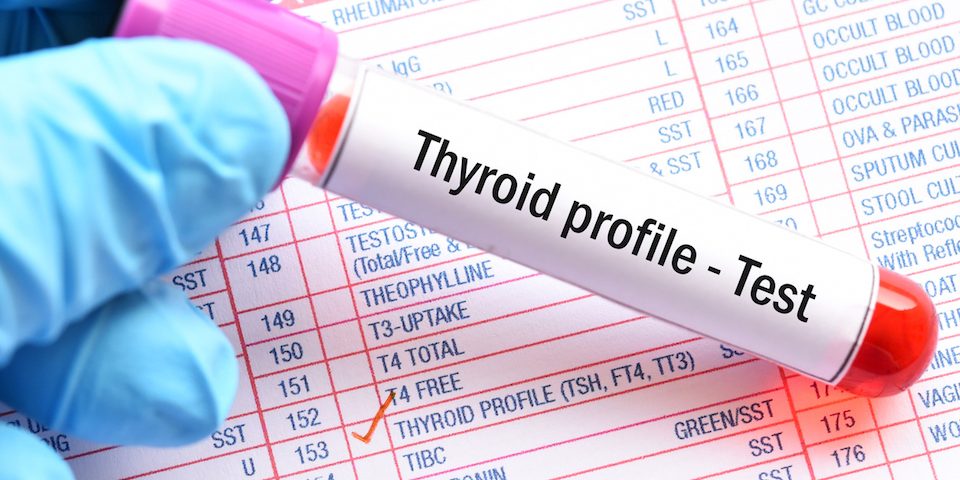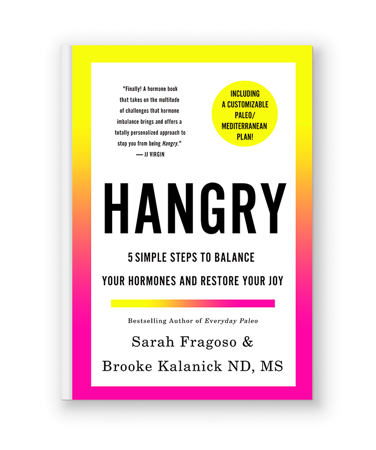
I’ve received a flood of emails lately from readers about what tests to order to fully have your thyroid evaluated – seemed worthy of a blog post!
By the way, thank you all so much for reading here and following on Facebook, especially for the Q&As Thursdays 3EST. I will be bringing on more guests and more good info – so keep tuning in.
Thyroid problems, particularly Hashimoto’s, are rampant and often not thoroughly worked up in my opinion. If you want to be part of a unique Hashimoto’s group and work with me, click here.
OK, before I give out a list I want to preface by saying that having all the tests in the world aren’t that helpful if the person reviewing them isn’t able to interpret how various factors such as estrogen, blood sugar, gut health, etc.affect your thyroid. Your hormones weave a very intricate web with countless subtleties that a thyroid savvy nutritional medicine doc can help you sort through.
You are so wonderfully complex and thorough labwork is an important first step to getting you feeling better -so you’re on the right track to ask about this.
Gathering the info is the first step. Information is power – use it to powerfully take action!
With Hashimoto’s more than many other conditions, you’re going to be left to seek out better options beyond what the conventional model has for you. But that’s cool, cuz there is a ton you can do to feel better! So please don’t take “Your labs are normal regardless of you feeling like crap” as the final answer.
Get you FREE copy of my Guide To Lab Testing & Your Hormones
This guide covers hormonal testing and thyroid patterns and will show you how to suss out the Hormonal Dealbreakers of inflammation, anemia and blood sugar problems.
Get Your Free Lab Guide HereOne other thing to mention is that while we’re talking thyroid here – you are not merely your thyroid, but rather you are all of your parts! All of your systems: liver, gut, adrenals, female hormones, electrolytes, B12 and iron status, among others really need to be looked at in order to have good thyroid function and a balanced immune system.
A few top proprieties to healthy thyroid function (particularly if you have Hashimoto’s) are blood sugar balance; anemias (both overt, borderline and pre-anemias due to B12, B6 or iron deficiencies – I like to get to these before they are full blown); inflammation and essential fatty acid balance; liver detoxification and gut health (food allergies; leaky gut; lack of digestive enzymes; gut infections, etc.).
So while we need to intervene in the thyroid cascade where we can to help you get better thyroid function, lose weight, stop your hair from falling out, have abnormal menstrual cycle, etc. – these other aspects also need to be evaluated. Hence my long, long lab list. This list in indeed lengthy, but this is my ideal scenario to see how best to help address the whole you and get results:
A complete metabolic panel to get a glimpse into adrenal function, liver and gut health, electrolytes, a few minerals, blood sugar balance.
Labs vary on what’s in their “compete metabolic panel” but be sure to include magnesium and LDH (a great marker for hypoglycemia) if not on the labs standard panel. Because anemias are such a priority, a CBC w/differential (tells us size, shape, amount of red blood cells as well as amount and different types of white blood cells); methyl malonic acid (a good indicator of B12 status, whereas a serum B12 level – unless showing us toxicity – is pretty much useless and will always be high if you are taking any vitamin with B12 in it); TIBC and ferritin to further evaluate iron status beyond the CBC and serum iron that is on the metabolic panel. It’s wise for all of us to regularly check HgA1C (hemoglobin A1C) in order to track blood sugar and insulin issues over time.
A lipid panel with cholesterol, HDL, LDL and triglycerides are important as well (more specific lipid testing can be done if you have high cholesterol). Interesting that many years ago elevated cholesterol was considered a marker for hypothyroidism, not heart disease. 25 OH Vitamin D is must. I like Hashimoto’s patients to be in the 80-100ng/mL range (toxicity starts around 120ng/mL) and many are much, much lower than 80 (often down in the 20s or even teens). This level should be brought up and kept up – but you can take too much vitamin D. If you’re supplementing with more than 4000IU per day it’s important to routinely get levels checked (every 3 months at least). And with Hashimoto’s. we’re often able to get levels up but they usually plummet back down without continued supplementation (this is due to a genetic defect in the vitamin D receptor, common in autoimmune diseases).
OK, on to your thyroid specific testing:
A full thyroid panel would be: TSH, total and free T4, total and free T3, T3Uptake, and reverse T3. If you aren’t sure you have Hashimoto’s you’d want to request the TPO and TG antibodies. If you are paying cash vs. billing insurance, know that free T3 is one of the more expensive ones. I can often suss out most issues with just: TSH, total T4, total T3 and T3Uptake. This would be a “mini thyroid panel”.
Note on Antibody Testing: I do not re-run antibodies in most cases. Once we’ve seen them above 20 I consider this to be Hashimoto’s (most labs cut off at 35) and do not retest them. It is common to do so, but it tells us very little about whether or not you are getting better. Antibodies are a reflection of the immune system being wound up or not. If you got tested when your immune system was relatively quiet they may be lower than say after you’d had a lot of gluten, gotten a cold, or been under some stress. And while one patient may have TPO antibodies of 40 and another 400 – the one with 40 is not necessarily “healthier”, will need less Synthroid, or have an easier go of it than the one who had 400. Because they wax and wane due to immune system activation, be wary of a practitioner that says their treatment protocol is working because your antibodies are lower. The truth is they bounce all over the place so they are not a particularly useful tool in determining if our strategy is successful or not.
Getting this List Past Your Doc
Many doctors scoff at this lengthy list – either because they don’t look at things the way I do or because they have their hands tied with insurance constraints (can be tough to justify all of this to your insurance). And again, having the information is the first step – but you have to be able to translate that info into you feeling better which may require the help of someone who can help you look at all these variables and safely make recommendations for you.
Order Hangry right now!
If you’ve ever felt like a Hangry B*tch and are ready to balance your hormones and restore your joy in just 5 simple steps then Hangry is for you!
GET YOUR COPY NOW
Your doctor means very well, but they usually only use labs to do what their model says to do: look for high TSH and low T4, diagnose hypothyroidism, and medicate with thyroid replacement as needed (Synthroid, Armour, etc). Which is great – let them handle that part and we’ll get to work on the rest!
To wrap up:
Hashimoto’s and autoimmune conditions are serious stuff and we want to be sure we do nothing that triggers more autoimmune attack and are effectively managing these other variables such as blood sugar, vitamin D deficiency, etc. For example, if your thyroid labs look OK but you’re even borderline deficient in B12 or iron, you will have a very hard time getting better.
Hopefully this gives you all a starting place to request additional testing from your provider and get a bigger picture. If they aren’t willing to order these tests you can utilize direct patient labs that require no doctor to order the test for you. If you got his route just know you will be paying a discounted cash price but you will not be able to utilize insurance. A couple such labs are Direct Labs, Accessa Labs and Principal Labs.
(Note: some states such as NY do have restrictions on these labs, most do not.)
One final note on labs: many of you have been told your labs are “fine” or “normal” and sent off on your way.
Normal is a tricky term.
Labs define reference ranges based on data they have collected over time for the “normal ranges”. These are obviously based on the standard American population, which if I may say so, is hardly the picture of optimal health. So these ranges may be “normal” but hardly optimal for you.
Functional medicine doctors such as myself, use tighter ranges to suss out these more subtle issues and to catch things early. Also, remember that any one lab value is like a word. A couple of tests (say TSH and T3) is like a sentence. TSH, T4, free T3 and a couple antibodies are like a paragraph. The entire list above is an whole story.
So while any one value is important, stepping back and looking at the whole story, told by multiple tests, gives us a better picture of how to help you. This is not the “Well this one lab value is out of range so I can now diagnoses you with X condition” model of conventional medicine. I’m not necessarily saying one is better than the other – but they are very different approaches with a slightly different goal in mind.
Also, before we use the term “normal” we should realize that Synthroid (synthetic T4 thyroid hormone replacement) is the #4 drug prescribed in the US – do you think those thyroid values on standard lab ranges are “normal”? TSH and total T4 are largely skewed because so many people that make up our pool of data to base lab ranges on have hypothyroidism (1.75 million Americans as of 2001; 1 in 8 women having Hashimoto’s) and so many people are taking Synthroid (this will lower TSH norms and elevate T4 norms).
Just one more illustration as to why we can’t simply look at your labs and say…
”You’re fine and don’t let the door hit you on the bum on your way out.”
And lest we get lost in looking at the thyroid, remember that Hashimoto’s affects the thyroid, but it is an immune system issue. This makes things like gluten, blood sugar, etc. crucial to getting you better even when we get things in line with the thyroid. It’s a lot huh? It is – and it’s super important. Which is why Molly Galbraith and I put together this one of a kind program – to help you systematically understand and implement these aspects and shed the fat too! Good luck in gathering more info and feeling BETTER!
Order Hangry right now!
If you’ve ever felt like a Hangry B*tch and are ready to balance your hormones and restore your joy in just 5 simple steps then Hangry is for you!
GET YOUR COPY NOW
